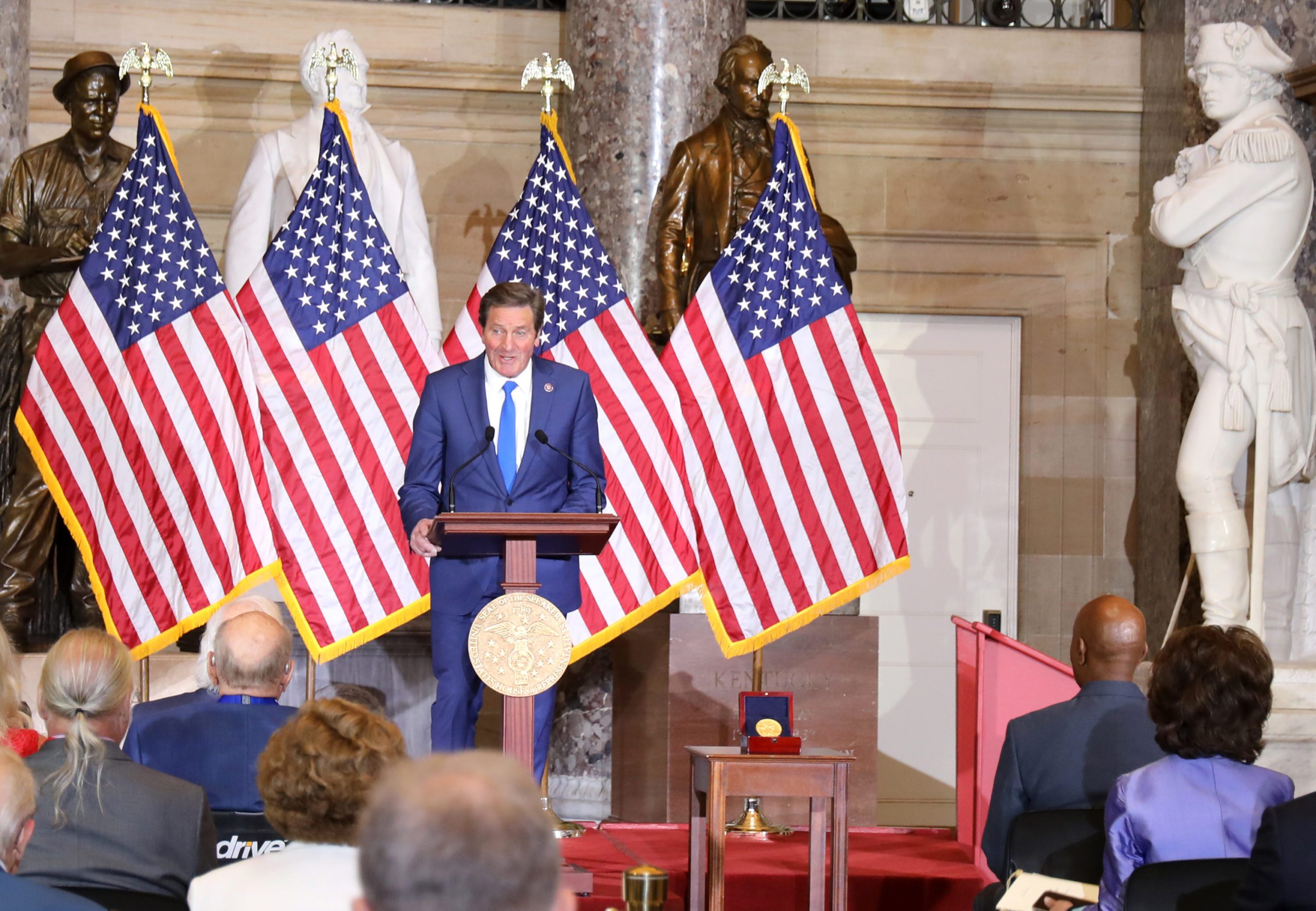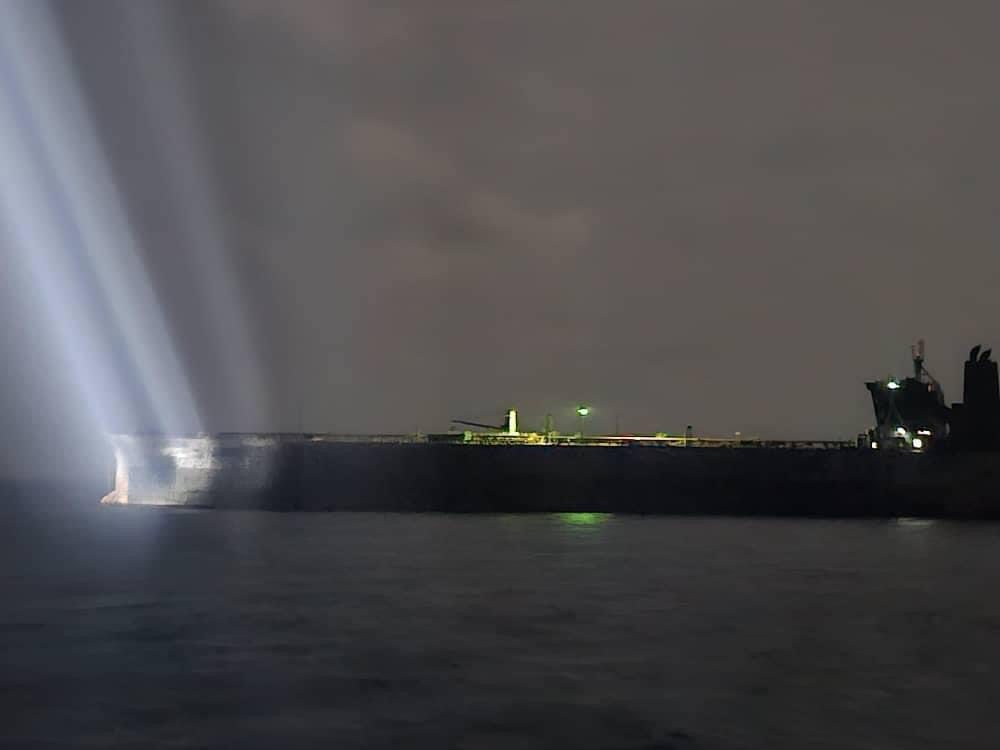Congressman John Garamendi (D-CA) has reintroduced the “Close Agency Loopholes to the Jones Act” bill, which aims to address loopholes that have disadvantaged American workers for almost 50 years. These loopholes, known as “letter rulings,” have allowed federal regulators to bypass the Jones Act, a federal maritime law that requires transportation and shipments between U.S. ports to be conducted on ships built and operated by American citizens or permanent residents.
As the top Democrat on the House Armed Services Subcommittee on Readiness and a senior member of the Transportation and Infrastructure Committee, Congressman Garamendi is leading the effort to enforce the Jones Act as it was originally intended. He initially introduced the bill in December of last year.
The bill seeks to ensure that foreign vessels do not exploit American maritime industry workers by paying poverty wages. It aims to maximize job opportunities for American mariners, U.S.-flagged vessels, and domestic shipyard workers. By closing the existing loopholes, the bill would uphold the original intent of Congress when the Jones Act was created in 1920.
In January 2021, President Biden issued an executive order directing federal agencies to prioritize the use of American mariners, American-built ships, and U.S.-flagged vessels under the Jones Act. However, less than 90 days later, Customs and Border Protection issued a letter ruling contradicting the President’s policy, allowing foreign vessels to participate in energy projects on the Outer Continental Shelf. Congressman Garamendi’s bill aims to ensure that federal bureaucrats fully enforce the Jones Act and implement the President’s policy.
The “Close Agency Loopholes to the Jones Act” bill, also known as H.R.5991, includes several provisions to address specific loopholes dating as far back as 1972. It closes loopholes related to oceanographic research vessels, vessel equipment, lifting operations, installation vessels, paid out-not unladen vessels, decommissioning vessels, seabed sampling, and pristine seabed operations. The bill also grants Jones Act operators the right to appeal Customs and Border Protection’s decisions that undermine the Jones Act, and subjects the agency’s enforcement to the Congressional Review Act.
Additionally, the bill requires foreign-flagged vessels operating on the Outer Continental Shelf to publicly notify Customs and Border Protection of their purported Jones Act exemption, and authorizes penalties for non-compliance. It also mandates that offshore energy developers pay a prevailing wage determined by the U.S. Department of Labor under the Davis-Bacon Act. The bill directs the U.S. Coast Guard to fully implement Congressman Garamendi’s 2020 amendment, which ensures that federal laws like the Jones Act apply to offshore renewable energy production in the United States’ Exclusive Economic Zone.
“The U.S. government should do everything in its power to prevent foreign vessels from paying poverty wages to take jobs from Americans working in our maritime industry. Sadly, federal regulators have largely enabled it instead. My ‘Closing Agency Loopholes to the Jones Act’ would finally enforce the law as Congress intended when it created the Jones Act in 1920. Passing my legislation means maximizing job opportunities for American mariners, U.S.-flagged vessels and domestic shipyard workers,” Garamendi said.
“In January 2021, President Biden’s first executive order after assuming office directed federal agencies to maximize the use of American mariners, American-built ships, and U.S.-flagged vessels under the Jones Act. Less than 90 days later, Customs and Border Protection issued a letter ruling contradicting the President’s policy to allow foreign vessels to construct energy projects on the Outer Continental Shelf. My bill will force federal bureaucrats to implement the President’s policy by fully enforcing the Jones Act,” Garamendi added.
The “Close Agency Loopholes to the Jones Act” bill has garnered endorsements from various organizations including the Offshore Marine Service Association, American Waterways Operators, International Association of Machinists and Aerospace Workers, Maritime Trades Department (AFL-CIO), Metal Trades Department (AFL-CIO), American Radio Association, Sailors Union of the Pacific, American Maritime Officers, International Organization of Masters, Mates & Pilots, Marine Firemen’s Union, Seafarers International Union, Marine Engineers’ Beneficial Association, International Longshore and Warehouse Union, and International Brotherhood of Boilermakers, Iron Ship Builders, Blacksmiths, Forgers and Helpers.

 Join The Club
Join The Club











